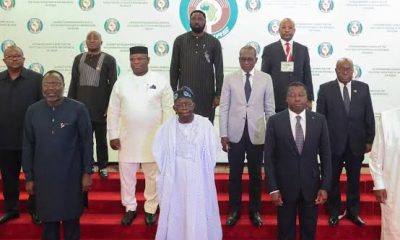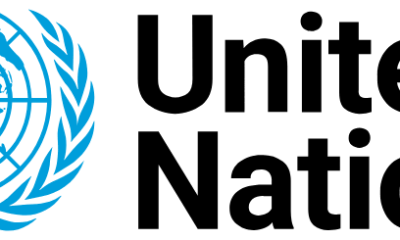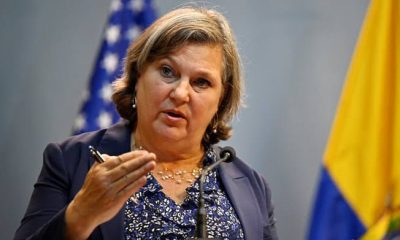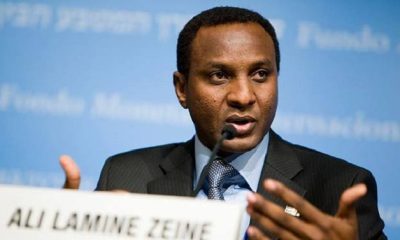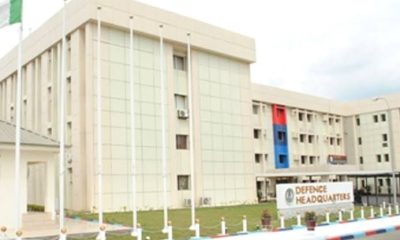Foreign
Niger’s junta refuses entry to negotiators, allies appeal to UN

Tensions remain high in the aftermath of a coup in Niger Republic as the military junta refused entry to a negotiating mission planned for Tuesday by the United Nations, Economic Community of West African States (ECOWAS) and the African Union (AU).
The military governments of Mali and Burkina Faso have called on the UN Security Council to prevent military action against the putschists in their neighbouring country Niger.
ECOWAS threatened this as a possible reaction to the coup d’état at the end of July in which the military seized power in Niger, suspended the constitution, and imprisoned the president.
In Tuesday’s letter, Malian Foreign Minister Abdoulaye Diop and Burkinese Foreign Minister Olivia Rouamba addressed the UN’s most powerful body as well as the African Union.
“The transitional governments of Burkina Faso and the Republic of Mali appeal to the primary responsibility of the (UN) Security Council as guarantor of international peace and security to prevent, by all means at its disposal, armed action against a sovereign state, the consequences of which would be unforeseeable in their magnitude,” the letter reads.
The aim is “to avoid, in addition to the deterioration of the security situation with the multiplication and spread of terrorist groups, a humanitarian tragedy, which would add to the difficulties of a population legitimately waiting for support.”
Both Mali and Burkina Faso are currently suspended from ECOWAS following coups and have clearly sided with the military rulers in Niger.
They declared that they would not support the ECOWAS sanctions and that any military action would be seen as a “declaration of war” against their own states.
Mali’s Diop caused a stir at the UN Security Council in New York in June when he called for the immediate withdrawal of the UN peacekeeping mission that has been stationed in Mali for a decade.
Coming from Libya and northern Mali, Islamist terrorist groups have been spreading in the three bordering countries since 2012.
The U.S. government said it continues to hope for a diplomatic solution after the coup in Niger but at the same time it is realistic, U.S. State Department spokesman Matthew Miller said in Washington on Tuesday.
U.S. diplomat Victoria Nuland spoke with members of the junta in the capital Niamey on Monday, but was not allowed to meet either the detained President Mohamed Bazoum or the military ruler General Abdourahamane Tchiani.
Tchiani received a delegation from Mali and Burkina Faso on Monday, who assured him of their support.
The junta announced a prime minister and other posts late on Monday night.
Ahead of the special ECOWAS summit on the coup in Niger, Nigeria has underscored its hope for a negotiated solution.
President Bola Tinubu believes “diplomacy is the best way forward” to resolve the crisis, his spokesman Ajuri Ngelale said on Tuesday.
“This represents “the consensus position of the ECOWAS heads of states,” he said.
Tinubu is currently ECOWAS chair. At the summit, “far-reaching decisions will be taken concerning the next steps the regional bloc will take,” the spokesman said.
He added that “no options have been taken off the table.”
The federation of currently 11 states plans to meet in Nigeria’s capital Abuja on Thursday.
The military chiefs of the ECOWAS countries had presented a plan for a possible intervention last week.
Besides Nigeria, Benin, Senegal, and Ivory Coast have declared their readiness for military intervention.
The French broadcaster RFI reported on Tuesday that the plans included a force of 25,000 soldiers.
The military governments of Mali, Burkina Faso, and Guinea, which were suspended by ECOWAS after coups, support the putschists in Niger.
Malian Minister of Territorial Administration Abdoulaye Maïga reaffirmed after his meeting with General Tchiani in Niger on Monday “the active, effective and full participation of Mali and Burkina Faso in legitimate defence operations in the event of an ECOWAS attack on Niger.”
On July 26, officers of the presidential guard in Niger ousted the democratically elected Bazoum.
The commander of the elite unit, Tchiani, subsequently appointed himself the new ruler, then the putschists suspended the constitution and dissolved all constitutional institutions.
Foreign
3 teens arrested in Germany for allegedly plotting terror attack
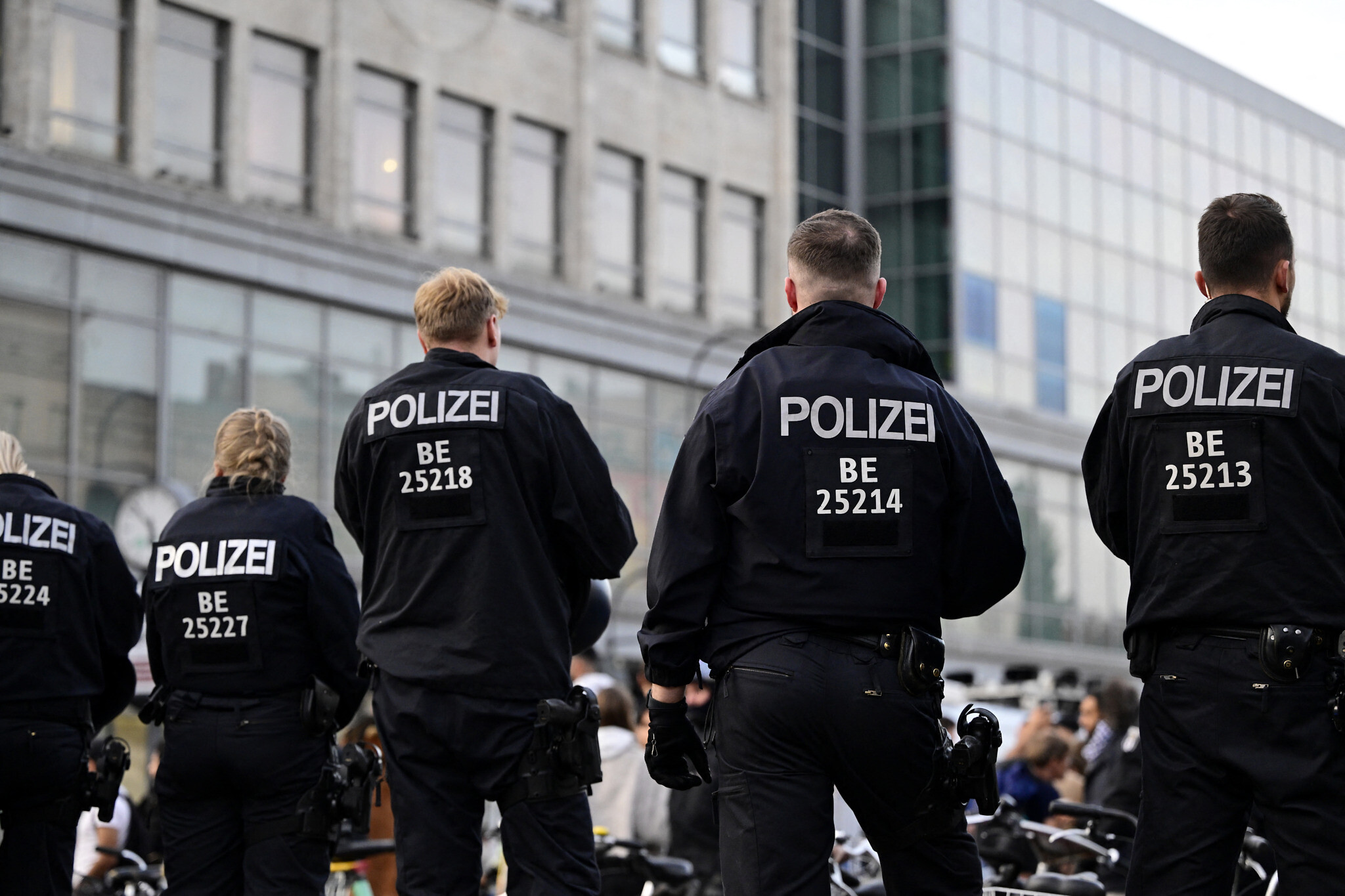
German authorities have arrested three teenagers aged 15 and 16 on suspicion of plotting a deadly Islamist terrorist attack in the western German state of North Rhine-Westphalia, prosecutors said on Friday.
The state’s Central Office for the Prosecution of Terrorism (ZenTer NRW) sought an arrest warrant for the teenagers over the Easter holiday.
They were suspected of plotting a terrorist attack in accordance with the aims and ideology of (extremist militia organisation) Islamic State.
The detained suspects are a 15-year-old girl from Dusseldorf, a 16-year-old girl from the Märkischer Kreis district and a 15-year-old boy from the Soest district, located about 100 kilometres to the east of Dusseldorf.
A fourth suspect has reportedly been identified in the south-western German state of Baden-Württemberg, and the local court there has issued an arrest warrant.
According to the investigators, the teenagers are accused of having agreed to commit murder and manslaughter.
This is in conjunction with the preparation of a serious act of violence endangering the state.
The presumption of innocence applied in all stages of the proceedings.
Security sources told newsmen that the young people had formed a chat group, but had not drawn up a concrete attack plan for a particular time and place.
However, sources said the cities of Dortmund, Dusseldorf and Cologne were discussed as targets, and attacks with knives and Molotov cocktails on people in churches or police officers in police stations had been considered.
The sources said authorities had also conducted searches as part of the investigation.
A machete and a dagger were seized in Dusseldorf, but no evidence of the construction of incendiary devices was discovered.
Sources said the father of the Dusseldorf suspect had already attracted attention from authorities in the past because he had allegedly collected donations for the Islamic State.
The investigators declined to reveal how the suspected terrorists were tracked down, but said that foreign intelligence agencies “did not play a role.”
Foreign
Putin Registers As Candidate For Russia’s Next Presidential Election
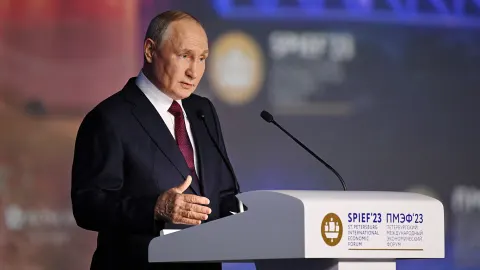
Russia on Monday officially recognised Vladimir Putin as a candidate for the presidential elections in March, a vote that he is all but certain to win.
The 71-year-old has led Russia since the turn of the century, winning four presidential ballots and briefly serving as prime minister in a system where opposition has become virtually non-existent.
The Central Election Commission said it had registered Putin, who nominated himself, as well as right-wing firebrand and Putin-loyalist Leonid Slutsky as candidates for the vote.
The election will be held over a three-day period from March 15 to 17, a move that Kremlin critics have argued makes guaranteeing transparency more difficult.
Following a controversial constitutional reform in 2020, Putin could stay in power until at least 2036.
Rights groups say that previous elections have been marred by irregularities and that independent observers are likely to be barred from monitoring the vote.
While Putin is not expected to face any real competition, liberal challenger Boris Nadezhdin has passed the threshold of signatures to be registered as a candidate.
However, it is still unclear if he will be allowed to run, and the Kremlin has said it does not consider him to be a serious rival.

